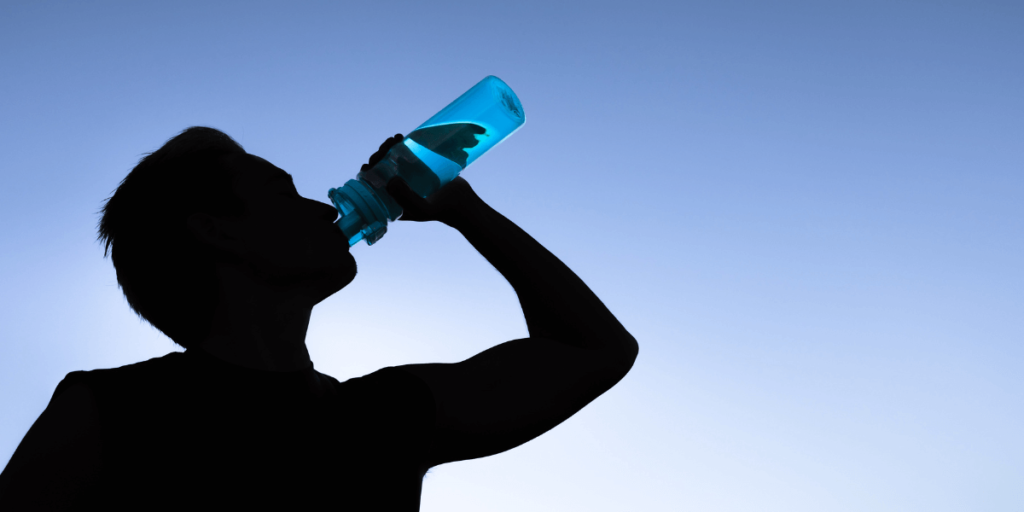Introduction: What is Hydration?
We often hear about the importance of staying hydrated, but what does hydration truly mean? Hydration refers to the process of maintaining an adequate amount of water in the body’s tissues and systems. This is not just about quenching our thirst; it plays a vital role in our overall well-being and is integral to numerous bodily functions. Understanding why hydration is crucial can pave the way for healthier lifestyle choices.
The human body is composed of about 60% water, making water an essential component for life. Water facilitates countless physiological processes, including temperature regulation, waste elimination, and nutrient transportation. Hence, adequate hydration is indispensable for these functions to operate seamlessly. Whether through drinking water, eating water-rich foods, or other beverages, our bodies need a consistent intake of fluids to maintain this delicate balance.
Recognizing how water fuels our body is the first step towards appreciating its significance. Despite its simplicity, water’s role is complex and multifaceted. From enabling cellular processes to enhancing mental clarity, water is a silent but powerful partner in our daily lives. The effects of hydration, or the lack thereof, are quickly felt, highlighting its immediate necessity.
Misconceptions about hydration abound, leaving many of us under-hydrated without realizing it. By demystifying the role of water and understanding how to keep ourselves adequately hydrated, we can take proactive steps towards better health. This article delves into the essential health benefits of staying hydrated, offering practical advice and debunking common myths.
Water’s Vital Functions in the Body
Water is the essence of life, and its importance cannot be overstated. It performs numerous critical functions that sustain our health. First and foremost, water acts as a solvent, enabling chemical reactions in the body. It helps dissolve minerals and nutrients, making them accessible for uptake by the body. This process is essential for the proper functioning of our cells and organs.
Secondly, water is crucial for regulating body temperature. Through the process of sweating, water helps cool the body down, preventing overheating. This thermoregulation is vital, especially in hot climates or during physical exertion. Without sufficient water intake, the body’s ability to regulate temperature can be compromised, leading to heat-related illnesses.
Moreover, water aids in the elimination of waste products from the body. The kidneys rely on water to filter toxins out of the blood and excrete them through urine. Adequate hydration ensures that this filtration process runs smoothly, reducing the load on the kidneys and promoting overall detoxification. Additionally, water is necessary for bowel regularity, as it helps soften stools and prevent constipation.
In a comprehensive view, water’s role extends to lubricating joints, cushioning the brain and spinal cord, and maintaining overall cellular health. It is the medium through which essential nutrients and oxygen are delivered to cells, and waste products are removed. Understanding these fundamental roles can help us appreciate why staying hydrated is so essential for health.
| Function | Description |
|---|---|
| Solvent | Dissolves minerals and nutrients for cellular uptake. |
| Thermoregulation | Controls body temperature through sweating and other mechanisms. |
| Waste Elimination | Facilitates the removal of toxins via urine and bowel movements. |
| Lubrication | Cushions joints and the brain, protecting them from damage. |
| Nutrient Transport | Delivers essential nutrients and oxygen to cells, and removes waste products. |
Recommended Water Intake for Adults and Children
Understanding how much water to consume is key to maintaining optimal hydration. The recommended daily water intake can vary based on factors such as age, sex, weight, and activity level. However, generalized guidelines provide a good starting point for adults and children.
For adults, the Institute of Medicine suggests a total daily water intake of approximately 3.7 liters (or about 13 cups) for men and 2.7 liters (about 9 cups) for women. These recommendations include all beverages and moisture in food. It’s worth noting that individuals with higher physical activity levels or those living in hotter climates may require more fluids to stay adequately hydrated.
Children’s needs differ based on their developmental stages. For instance, young children aged 1-3 years should aim for about 1.3 liters per day, while those aged 4-8 years should consume around 1.7 liters. For older children and adolescents, the intake recommendations increase, with boys aged 9-13 requiring about 2.4 liters and girls needing about 2.1 liters daily.
To simplify these recommendations, consider this table:
| Age Group | Daily Water Intake |
|---|---|
| Men (Adults) | 3.7 liters (13 cups) |
| Women (Adults) | 2.7 liters (9 cups) |
| Children (1-3 years) | 1.3 liters |
| Children (4-8 years) | 1.7 liters |
| Boys (9-13 years) | 2.4 liters |
| Girls (9-13 years) | 2.1 liters |
Meeting these intake levels ensures that both adults and children maintain adequate hydration, supporting their physiological needs and overall health.
How to Recognize Dehydration
Dehydration occurs when the body loses more water than it takes in. Recognizing the signs early can prevent the condition from worsening. Thirst is the most immediate and recognizable indicator of dehydration, but it’s not the only symptom.
Other common signs of dehydration include dark-colored urine, which indicates concentrated urine due to insufficient water in the body. A decrease in urine output is also a telling sign that the body is conserving water. Alongside this, individuals may experience dry mouth and swollen tongue, as well as dry, cool skin. Dizziness, fatigue, and confusion can also occur as the body’s systems struggle to function without adequate hydration.
For more severe dehydration, symptoms can escalate to rapid heartbeat, rapid breathing, and even fainting. At this stage, immediate medical attention is necessary. It’s important to note that infants, young children, and the elderly are more susceptible to dehydration and may not always express thirst.
To keep dehydration at bay, self-monitoring is key. Pay attention to your body’s signals and ensure consistent fluid intake. If you’re engaging in strenuous activities or spending time in hot environments, increase your water intake accordingly.
| Dehydration Signs | Description |
|---|---|
| Thirst | The body’s primary signal indicating the need for more water. |
| Dark-colored urine | Sign of concentrated urine due to lack of sufficient hydration. |
| Dry mouth and tongue | Indicates the mouth and tongue are suffering from reduced moisture levels. |
| Dizziness and fatigue | The body struggling to maintain energy and balance without adequate hydration. |
| Rapid heartbeat | Severe dehydration causing the heart to pump faster to maintain circulation. |
Physical and Mental Health Benefits of Hydration
Maintaining proper hydration is linked to numerous physical and mental health benefits. Physically, water plays a crucial role in supporting bodily functions like digestion, circulation, and temperature regulation. Hydration helps in maintaining skin health, reducing the appearance of wrinkles, and keeping the skin elastic and glowing. Moreover, it supports weight management by promoting a feeling of fullness, which can reduce overall calorie intake.
On the mental health front, hydration is just as vital. Water is crucial for cognitive functions, such as concentration, memory, and alertness. Dehydration can lead to confusion, mood swings, and impaired cognitive performance. Research suggests that even mild dehydration can negatively affect cognitive function and mood in both children and adults.
For athletes and active individuals, hydration improves physical performance. Proper water intake delays the onset of fatigue, boosts endurance, and decreases the likelihood of cramps. Staying hydrated also supports quicker recovery times post-exercise, allowing athletes to maintain a consistent training schedule.
Furthermore, adequate hydration can help mitigate conditions such as kidney stones and urinary tract infections. The kidneys rely on water to dissolve minerals and nutrients, making it easier to filter out waste and toxins. Inadequate hydration can lead to an increased concentration of minerals in the kidneys, eventually forming painful stones.
Common Myths About Drinking Water
Despite the clear importance of hydration, several myths surround the consumption of water. One widespread myth is that everyone needs to drink eight glasses of water a day. While this can be a helpful guideline, individual hydration needs can vary significantly based on factors like age, climate, and physical activity level.
Another myth is that drinking water can help with significant weight loss. While staying hydrated can aid in weight management, it is not a substitute for a balanced diet and regular exercise. Water can help create a feeling of fullness, but it’s one part of a comprehensive approach to weight loss.
Some people believe that if they are not thirsty, they are not dehydrated. However, thirst is not always a reliable indicator of hydration status, especially in older adults. It’s possible to be mildly dehydrated without experiencing a strong sense of thirst.
Myth: All fluids count toward hydration. It’s crucial to differentiate between the types of fluids consumed. Beverages high in sugar, caffeine, or alcohol can have diuretic effects, leading to increased water loss. While these beverages may contribute to overall fluid intake, they should not be relied upon as primary sources of hydration.
| Common Myths | Reality |
|---|---|
| Eight glasses of water rule | Individual needs vary based on numerous factors. |
| Water alone for weight loss | Hydration aids weight management but is not a standalone solution. |
| Thirst as an indicator | Thirst does not always accurately reflect hydration needs. |
| All fluids hydrate | Sugary, caffeinated, or alcoholic beverages may have diuretic effects and should not be primary sources. |
Practical Ways to Increase Water Intake
Incorporating more water into your daily routine is straightforward with a few practical tips. Start your day with a glass of water. It can help wake up your body and prepare it for the day ahead. Keeping a reusable water bottle with you at all times can serve as a constant reminder to drink water throughout the day.
Another effective strategy is to set reminders on your phone or use a hydration-tracking app. These tools can prompt you to take a sip consistently, making it less likely to forget. Adding flavor to your water can also make it more appealing. Infuse it with slices of fruits like lemon, lime, or berries, or add herbs like mint for a refreshing twist.
Eating water-rich foods is another sneaky way to boost your hydration. Fruits and vegetables with high water content, such as watermelon, cucumbers, and oranges, significantly contribute to your fluid intake. Incorporating these into your meals and snacks is both nutritious and hydrating.
Adjusting your habits to include more water can be simple yet powerful:
- Start Your Day: Drink a glass of water upon waking.
- Always Keep a Bottle: Carry a reusable water bottle to sip from throughout the day.
- Set Reminders: Use apps or alarms to remind you to drink water regularly.
- Infuse with Flavor: Add fruits or herbs to your water for enhanced taste.
- Incorporate Water-Rich Foods: Include hydrating fruits and vegetables in your diet.
Special Hydration Needs for Athletes
Athletes have increased hydration needs due to their elevated activity levels. During intense exercise, the body loses water through sweat, which is essential for cooling down the body but also increases the risk of dehydration. To maintain optimal performance and health, athletes must pay particular attention to their hydration strategies.
Before exercise, it is beneficial to consume approximately 500-600ml (17-20 ounces) of water 2-3 hours prior to engaging in intense physical activity. This pre-hydration prepares the body for the water loss that will occur. During exercise, athletes should aim to drink approximately 200-300ml (7-10 ounces) of water every 10-20 minutes, depending on the intensity and duration of the activity, as well as the climate.
Post-exercise hydration is equally critical. Consuming 16-24 ounces of water for every pound of body weight lost through exercise can help in effective recovery. Rehydration helps restore fluid balance, replenish electrolytes, and aid muscle recovery. Athletes often benefit from sports drinks that contain electrolytes, as they can help replace the sodium, potassium, and other minerals lost through sweat.
For endurance athletes, such as marathon runners and cyclists, hydration strategies might need to be more intricate, including the balance of fluids and electrolytes over extended periods. Implementing a customized hydration plan can help sustain performance and prevent dehydration-related issues.
| Time | Hydration Strategy |
|---|---|
| Pre-Exercise | Consume 500-600ml (17-20 ounces) 2-3 hours before exercise. |
| During Exercise | Drink 200-300ml (7-10 ounces) every 10-20 minutes, adjusting for intensity and climate. |
| Post-Exercise | Rehydrate with 16-24 ounces of water for every pound of body weight lost during exercise. |
Impact of Climate on Hydration Needs
Climate significantly affects hydration needs, with hotter and more humid environments increasing the body’s demand for fluids. In warm climates, the body sweats more to maintain a stable internal temperature, leading to increased water loss. Consequently, residing in or traveling through hot environments necessitates a higher fluid intake to compensate for this additional loss.
Cold climates also pose hydration challenges, although they might not be as apparent. The cold can suppress the sensation of thirst, leading to under-consumption of fluids. Moreover, while the body might not sweat as much, respiratory fluid loss increases as cold, dry air passes through the respiratory tract. Winter environments also tend to have lower humidity, which can lead to quicker dehydration without the same obvious signs, such as sweating.
Altitude can further compound hydration requirements. At higher altitudes, the body experiences increased breathing rates and more frequent urination, both of which contribute to fluid loss. Dehydration at high altitudes can exacerbate altitude sickness symptoms like headaches, dizziness, and fatigue.
To manage hydration effectively in varied climates, consider these adjustments:
- In hot climates, aim to drink more than usual and include electrolyte-rich beverages to replace lost minerals.
- In cold climates, consciously remind yourself to drink water even if you don’t feel as thirsty.
- At high altitudes, increase water intake and acclimatize gradually to manage hydration and adjust to the environment.
Summary and Final Thoughts
Hydration is an indispensable component of health, vital for numerous bodily functions and overall well-being. Our body’s requirement for water encompasses not only our daily activities but also our physical and mental health. Understanding how much water we need and recognizing the signs of dehydration can help us maintain the delicate balance of fluids in our bodies.
Practical strategies to increase water intake, awareness of special hydration needs for athletes, and adapting to climate-driven hydration needs are all critical for staying hydrated. This knowledge can empower us to make informed decisions about our hydration habits, contributing to a healthier lifestyle.
The importance of water is backed by its fundamental role in physiological processes. By acknowledging the impacts of hydration and taking active steps to ensure adequate fluid intake, we can support our body’s functions and enhance our well-being. Staying hydrated is not just about drinking water; it’s about maintaining an essential aspect of our health.
Recap
- Hydration refers to maintaining an adequate amount of water in the body’s tissues and systems.
- Water is essential for processes such as nutrient transport, waste elimination, and temperature regulation.
- Recommended daily water intake varies by age, sex, and activity level.
- Recognizing dehydration includes monitoring signs like thirst, dark urine, and fatigue.
- Hydration benefits both physical and mental health, improving skin condition, cognitive functions, and athletic performance.
- Common myths about water consumption include the “eight glasses a day” rule.
- Practical tips include starting the day with water, carrying a reusable bottle, and eating water-rich foods.
- Athletes have specific hydration needs before, during, and after exercise.
- Climate affects hydration needs, with hotter climates requiring more fluid intake and cold climates necessitating conscious reminders to drink water.
FAQ
Q1: How do I know if I’m drinking enough water?
A1: You are likely well-hydrated if you rarely feel thirsty and your urine is light yellow. Regular fluid intake and monitoring are key.
Q2: Can drinking water help with weight loss?
A2: While water can aid in weight management by promoting a feeling of fullness, it should be part of a comprehensive diet and exercise plan.
Q3: Is it possible to over-hydrate?
A3: Yes, over-hydration or water intoxication is possible, usually resulting from excessive water intake that disrupts electrolyte balance.
Q4: Do caffeinated drinks count towards daily water intake?
A4: Caffeinated drinks do contribute to fluid intake, but they can also have diuretic effects, so they should be consumed in moderation.
Q5: How does hydration affect my skin?
A5: Proper hydration helps maintain skin elasticity, reduce wrinkles, and prevent dryness, promoting a more youthful appearance.
Q6: Are sports drinks necessary for hydration?
A6: For most people, water is adequate. However, sports drinks can be beneficial for athletes during prolonged, intense exercise to replace lost electrolytes.
Q7: What are water-rich foods?
A7: Foods high in water content include cucumbers, watermelon, oranges, and strawberries, which can supplement your hydration.
Q8: How does altitude affect hydration needs?
A8: Higher altitudes increase fluid loss through breathing and urination, requiring higher intake to prevent dehydration.
References
- Institute of Medicine. (2004). Dietary Reference Intakes for Water, Potassium, Sodium, Chloride, and Sulfate.
- European Hydration Institute. Benefits of Hydration on Physical Performance.
- Mayo Clinic. (2021). Water: How much should you drink every day?



